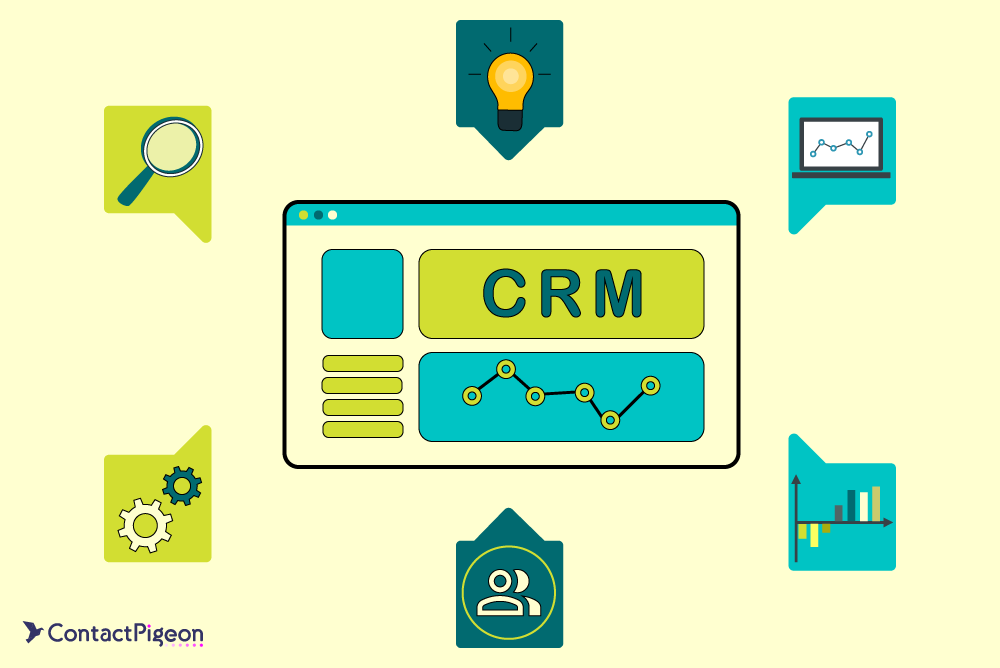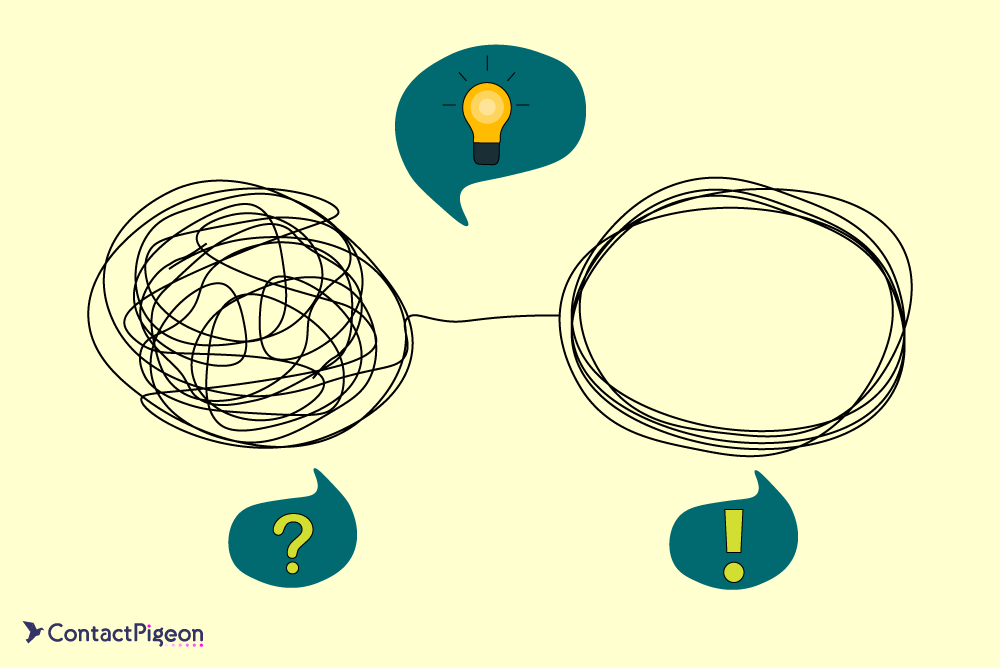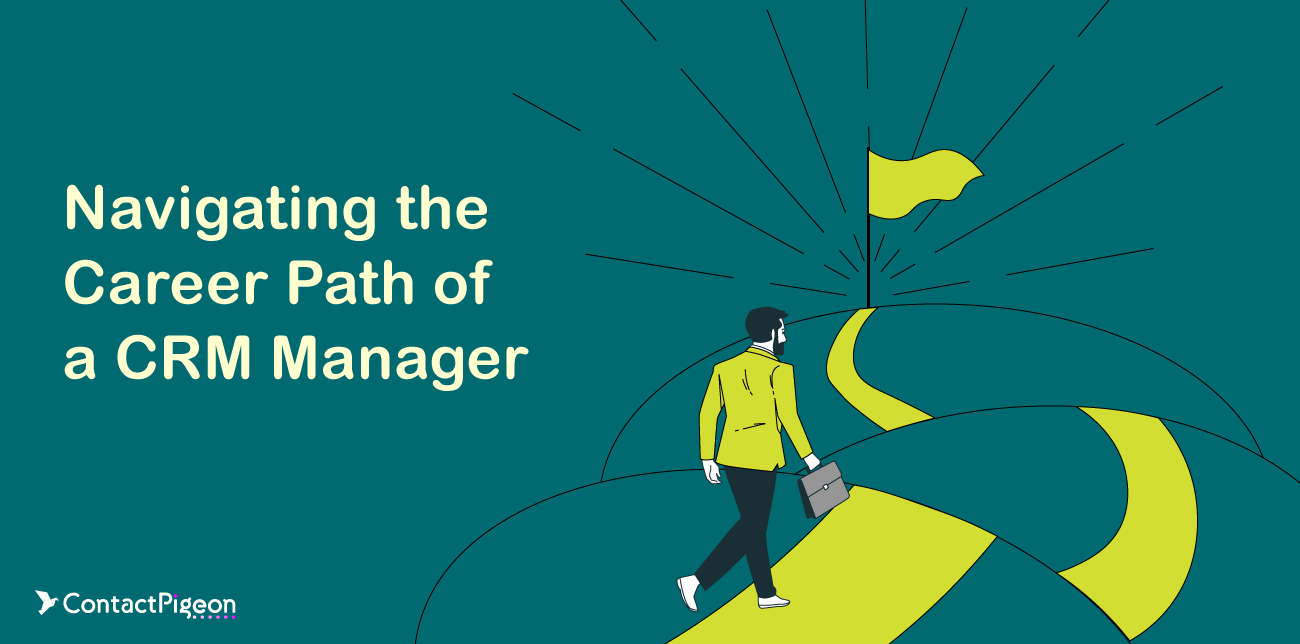The role of a Customer Relationship Management (CRM) Manager is evolving rapidly, especially in large retail businesses where the stakes for customer engagement and retention have never been higher. As we enter 2025, the journey to becoming a successful CRM Manager in retail has transformed, requiring a blend of technical expertise, strategic thinking, and customer-centric skills. Here’s a look at the key aspects of navigating this career path in the retail sector.
Redefining the role of a CRM manager in retail
CRM Managers are at the heart of crafting personalized customer experiences and steering business growth. Their strategic oversight enhances customer loyalty, engagement, and lifetime value, making them indispensable in the evolving retail landscape. Here’s a closer look at the key facets of their role:
Crafting winning customer engagement strategies
CRM Managers are architects of customer journeys, creating impactful strategies that attract, engage, and retain customers. They design personalized campaigns, manage loyalty programs, and optimize every touchpoint to build enduring connections with shoppers.
Harnessing the power of customer data
Data is the lifeblood of modern retail. CRM Managers not only collect and organize customer data but also delve deep into analytics to extract actionable insights. These insights fuel decision-making, predict customer behaviors, and uncover growth opportunities.
Driving technological excellence in CRM systems
With cutting-edge tools at their disposal, CRM Managers ensure seamless implementation and maintenance of CRM platforms. In 2025, solutions like ContactPigeon are transforming retail by integrating CRM, marketing automation, and analytics, helping managers achieve robust customer engagement goals.
Optimizing campaign performance for measurable results
Analyzing campaign success is a core responsibility. CRM Managers monitor metrics like click-through rates, conversion rates, and ROI, continuously refining strategies to maximize impact and achieve business objectives.
Empowering teams through training and leadership
Effective leadership is key to a CRM Manager’s success. By mentoring their teams and ensuring proficiency in tools and strategies, they foster a culture of excellence and alignment with organizational goals.
Turning customer feedback into actionable improvements
Listening to customers is paramount. CRM Managers work closely with customer service teams to gather and analyze feedback, transforming pain points into opportunities to enhance satisfaction and loyalty.
Ensuring compliance in a privacy-conscious era
In a world of stringent privacy regulations like GDPR and CCPA, CRM Managers are guardians of ethical data practices. They develop policies that ensure secure, transparent, and compliant handling of customer information.
Embracing innovation to stay ahead
The retail industry is in constant flux, and CRM Managers thrive by staying ahead of trends. From leveraging AI-powered tools to implementing predictive analytics and chatbots, they pioneer solutions that redefine customer experiences and ensure competitive advantage.
Why pursue a career in CRM management in retail?
The critical role of CRM professionals in retail success
CRM professionals are the backbone of customer relationship strategies in retail. By fostering strong connections with customers, they directly influence revenue growth and brand loyalty. Their expertise ensures higher customer satisfaction and retention, making them indispensable to achieving business goals.
Compelling reasons to choose CRM management as a career path
1. Thrive in a Dynamic and Innovative Work Environment
CRM management sits at the crossroads of cutting-edge technology, strategic planning, and human interaction. Professionals in this field navigate a constantly evolving landscape, making it a stimulating and rewarding career choice.
2. Unlock Abundant Career Growth Opportunities
CRM management offers a clear trajectory for professional advancement. Whether starting in an entry-level role or aiming for leadership positions, the career path is rich with opportunities for personal and professional development.
3. Make a Meaningful Impact on Customer and Business Outcomes
One of the most rewarding aspects of CRM management is the ability to see the tangible results of your efforts. From enhancing customer experiences to driving measurable business performance, the role offers the chance to create lasting value.
Key trends defining the future of CRM management in retail

The retail industry’s CRM landscape is undergoing rapid transformation, fueled by technological advancements and shifting customer expectations. Here’s a deeper look at the trends shaping CRM in 2025:
AI-powered CRM: Redefining customer interactions
Artificial intelligence is revolutionizing CRM processes by automating routine tasks and unlocking advanced insights. From predictive analytics to smarter customer segmentation, AI tools empower CRM Managers to:
- Recommend hyper-relevant content.
- Identify churn risks before they materialize.
- Streamline customer journeys for higher engagement and retention.
AI’s ability to learn and adapt ensures that CRM strategies are not only efficient but also future-proof.
Hyper-personalization: Crafting unique experiences
In 2025, one-size-fits-all approaches are obsolete. CRM Managers are leveraging real-time data and AI-driven customer profiles to deliver hyper-personalized experiences. This includes:
- Customized promotions tailored to individual preferences.
- Real-time product recommendations based on browsing or purchasing behavior.
- Engaging, data-driven interactions that foster loyalty and satisfaction.
This level of personalization creates memorable brand experiences and drives repeat business.
Customer experience innovation: The AR, VR, and gamification era
Innovative technologies are reshaping how customers engage with brands. Gamification adds an element of fun to loyalty programs, turning routine shopping into interactive experiences. Meanwhile, AR and VR create immersive environments, allowing customers to:
- Virtually try products before purchasing.
- Explore curated virtual stores that mirror physical spaces.
These innovations give CRM Managers powerful tools to elevate customer satisfaction and brand perception.
Omnichannel engagement: Unifying customer journeys
A seamless customer experience across digital and physical channels is now a retail standard. CRM Managers must ensure:
- Consistent messaging and branding across websites, apps, and stores.
- Unified data systems to track and respond to customer interactions in real time.
- Cohesive customer support, no matter where the interaction occurs.
Omnichannel mastery ensures customers feel valued and recognized throughout their journey.
Data ethics and privacy compliance: Building trust in a privacy-first era
With heightened scrutiny on data practices, CRM Managers must lead the charge in ethical data handling by:
- Implementing transparent data collection policies.
- Complying with regulations like GDPR, CCPA, or industry frameworks like ISO/IEC 27701.
- Educating customers about how their data is used to improve their experience.
By prioritizing privacy, CRM Managers can establish trust as a competitive advantage.
Blockchain technology: Enhancing data security
Blockchain is emerging as a game-changer for secure data management. Its decentralized and tamper-proof structure ensures:
- Customer data integrity across platforms.
- Transparent records for data sharing and transactions.
Adopting blockchain not only safeguards customer information but also bolsters confidence in the brand.
Subscription-based retail: Sustaining long-term relationships
The surge of subscription models in retail brings both challenges and opportunities for CRM Managers. To thrive, they must:
- Create personalized subscription experiences with tailored content and product recommendations.
- Introduce exclusive rewards that incentivize long-term retention.
- Maintain continuous engagement through timely communication and value-driven interactions.
Subscription-based models redefine how retailers build and sustain customer loyalty.
Mastering the essential skills for a CRM manager in retail

To thrive as a CRM Manager in 2025, professionals must cultivate a comprehensive skill set that reflects the evolving demands of the retail industry. Here are the top skills shaping successful CRM careers:
Data analytics mastery: Unlocking actionable insights
In an era dominated by data, CRM Managers must excel in analyzing vast customer datasets. Proficiency in tools like SQL, Python, and advanced CRM platforms is critical for:
- Tracking key performance metrics.
- Identifying customer trends and behaviors.
- Crafting data-driven strategies that optimize engagement and retention.
Advanced technical expertise: Navigating cutting-edge tools
With CRM technologies becoming more complex, technical proficiency is a must. CRM Managers should have a strong grasp of:
- AI-driven platforms for automation and segmentation.
- Marketing automation tools to streamline operations.
- System integration techniques for seamless workflow management.
Basic coding knowledge can also be a valuable asset, allowing managers to troubleshoot and customize systems effectively.
Strategic vision: Designing long-term success
The ability to think strategically is a hallmark of exceptional CRM Managers. This involves:
- Aligning CRM initiatives with overarching business goals.
- Leveraging predictive analytics to anticipate customer needs.
- Crafting long-term customer engagement plans that drive sustained growth.
Customer-centric mindset: Prioritizing empathy and satisfaction
Successful CRM Managers put customers at the center of their strategies. Key aspects include:
- Designing personalized experiences that resonate with individual preferences.
- Building emotional connections to enhance loyalty and satisfaction.
- Addressing customer pain points with empathy and proactive solutions.
Leadership and cross-functional collaboration
Leading teams and working across departments are crucial for CRM success. Strong leadership skills enable managers to:
- Mentor and guide CRM teams effectively.
- Collaborate with marketing, sales, and IT to ensure alignment on goals.
- Communicate strategies clearly to stakeholders at all levels.
Adaptability and innovation: Thriving in a fast-paced environment
The rapid evolution of retail and CRM technologies requires flexibility and innovation. CRM Managers should:
- Stay updated on trends like gamification, AR/VR, and blockchain.
- Experiment with new tools and methodologies to improve outcomes.
- Embrace a growth mindset to continually refine their skills.
Ethical awareness and regulatory compliance
With stricter data privacy laws, CRM Managers must prioritize ethical practices. This includes:
- Understanding and adhering to regulations like GDPR and CCPA.
- Implementing transparent data collection policies.
- Building customer trust through secure and ethical data management.
Career path & growth opportunities in CRM management
A career in CRM management offers a clear progression path with increasing responsibilities and rewards. Here’s an overview of typical milestones:
Entry-level roles: Building a strong foundation
Most professionals begin their CRM careers as analysts or coordinators, focusing on data collection, customer support, and assisting in campaign execution. Salaries typically range from $30,000 to $50,000 annually, depending on location and experience.
Mid-level progression: Taking on greater responsibilities
With experience, professionals advance to roles such as CRM Strategist, Marketing Manager, or Team Leader. These positions involve designing campaigns, managing teams, and overseeing CRM system operations. Salaries range from $50,000 to $70,000 annually.
Senior-level roles: Shaping strategy and driving impact
Senior roles include positions like Director of CRM, Head of Customer Engagement, or CRM Consultant. Responsibilities expand to include company-wide strategy development, large-scale project management, and stakeholder collaboration. Salaries for these roles typically range from $70,000 to $120,000 annually.
Long-term opportunities: Achieving executive leadership
For those aiming higher, executive roles like Chief Marketing Officer (CMO) or Chief Customer Officer (CCO) are achievable. These positions allow professionals to shape overall customer engagement policies and drive organizational growth.
Overcoming challenges as a CRM manager in retail

Balancing personalization and privacy
As customers demand personalized experiences, CRM Managers must navigate the fine line between leveraging data and respecting privacy.
- Compliance with Regulations: Ensuring adherence to GDPR, CCPA, and other data privacy laws.
- Building Trust: Creating transparent policies around data usage to build customer confidence.
Keeping pace with rapid technological change
The rapid evolution of CRM technologies poses a challenge for managers to stay updated and skilled.
- Continuous Learning: Regularly updating skills through certifications and training.
- Adoption of New Tools: Evaluating and implementing emerging technologies that align with organizational goals.
Managing growing customer expectations
Modern customers expect seamless, omnichannel experiences. Meeting these expectations can be challenging in large-scale retail operations.
- Consistency Across Channels: Delivering uniform customer experiences across online and offline touchpoints.
- Handling Feedback: Proactively addressing customer complaints and suggestions.
How to build a thriving CRM career in retail
Building a successful career as a CRM Manager in retail requires a blend of education, certifications, hands-on experience, and continuous learning. Here’s a step-by-step guide to carve out your path in this dynamic field
Lay a strong educational foundation
A relevant educational background is key to starting your CRM career. Consider these options:
- Undergraduate Degrees: Pursue a bachelor’s degree in fields such as marketing, business administration, data analytics, or information technology.
- Advanced Degrees: An MBA or master’s in data science, customer experience, or digital marketing can give you a competitive edge.
- Specialized Courses: Enroll in programs focused on customer engagement, loyalty management, and retail CRM strategies.
Earn industry-recognized certifications
Certifications can validate your expertise and increase your employability. Top certifications include:
- Salesforce Administrator or Marketing Cloud Certifications.
- HubSpot CRM Certification.
- Certifications in data analytics tools like Tableau or Google Analytics.
- Courses in customer experience management or data privacy compliance.
These credentials demonstrate your technical skills and commitment to professional growth.
Gain practical experience in CRM
Hands-on experience is crucial for understanding the complexities of CRM in retail. Begin with entry-level roles such as:
- CRM Analyst: Analyze customer data and campaign performance.
- Marketing Assistant: Assist in executing customer-centric campaigns.
- Customer Support Representative: Gain insights into customer pain points and preferences.
These roles provide exposure to CRM tools, data handling, and customer engagement strategies.
Master technical skills to stay competitive
In today’s tech-driven retail landscape, CRM Managers need technical proficiency. Focus on:
- CRM Platforms: Gain expertise in systems like Salesforce, HubSpot, or SAP CRM.
- Data Analysis Tools: Learn Tableau, Power BI, or Google Data Studio for data visualization.
- Coding Skills: Develop familiarity with SQL, Python, or R for advanced data analysis.
- Marketing Automation: Understand tools like Marketo or Adobe Campaign to streamline workflows.
Build and leverage a professional network
Networking is a powerful tool for career growth.
- Join Online Communities: Engage with CRM professionals on LinkedIn and specialized forums.
- Attend Industry Events: Participate in conferences, webinars, and trade shows focused on CRM and retail.
- Seek Mentorship: Connect with seasoned CRM Managers for career advice and guidance.
Stay ahead with continuous learning
The retail CRM field is evolving rapidly. Stay relevant:
- Following Trends: Keep up with developments in AI, machine learning, and predictive analytics.
- Learning Regulations: Understand data privacy laws like GDPR and CCPA to ensure compliance.
- Upskilling: Take online courses or attend workshops on emerging technologies like blockchain or AR/VR in retail.
Tips for an aspiring CRM manager in retail
Start small but think big
- Internships and Entry-Level Roles: Seek positions that expose you to CRM systems and customer engagement processes.
- Small Wins: Begin with projects like improving email campaign performance or analyzing customer feedback.
Highlight your achievements
- Results-Oriented Resume: Showcase quantifiable accomplishments, such as increasing customer retention rates or boosting campaign ROI.
Find a mentor
- Learn from Experience: Tap into the wisdom of seasoned CRM professionals who can guide your career.
Be proactive
- Take Initiative: Volunteer for CRM-related tasks in your current role to gain experience.
- Suggest Innovations: Propose ways to improve customer engagement or streamline CRM processes.
Some concluding thoughts…
The role of a CRM Manager in retail is as challenging as it is rewarding. With the right combination of skills, certifications, and experience, professionals can significantly impact customer engagement and business success. As trends like AI, hyper-personalization, and data ethics continue to evolve, staying adaptable and proactive is key. Whether you’re just starting your CRM career or aiming to advance, a focus on continuous learning and customer-centric strategies will position you for long-term success.



